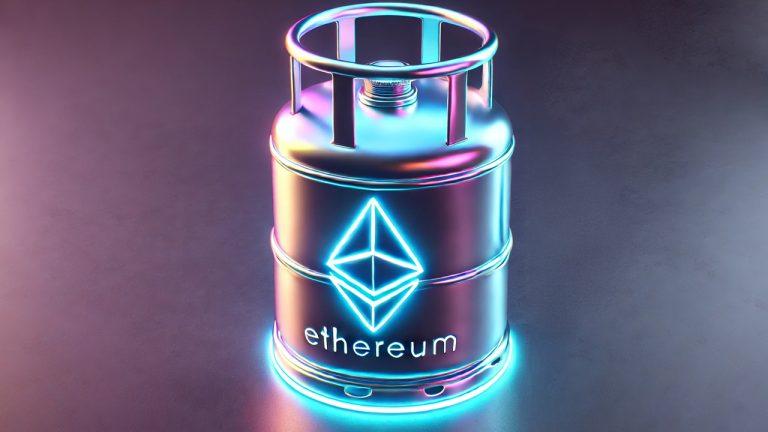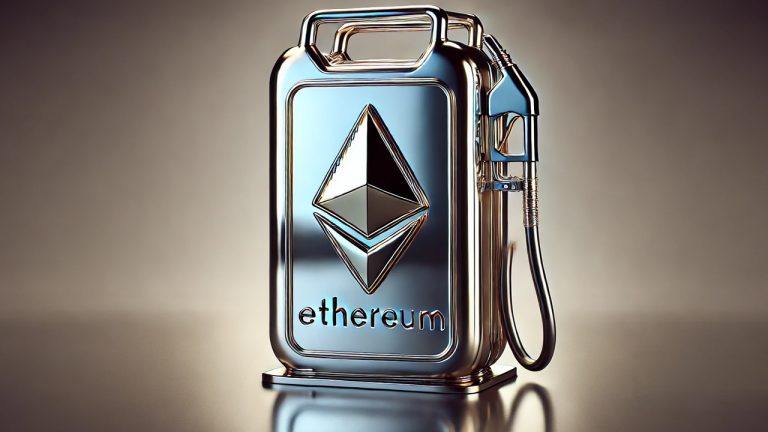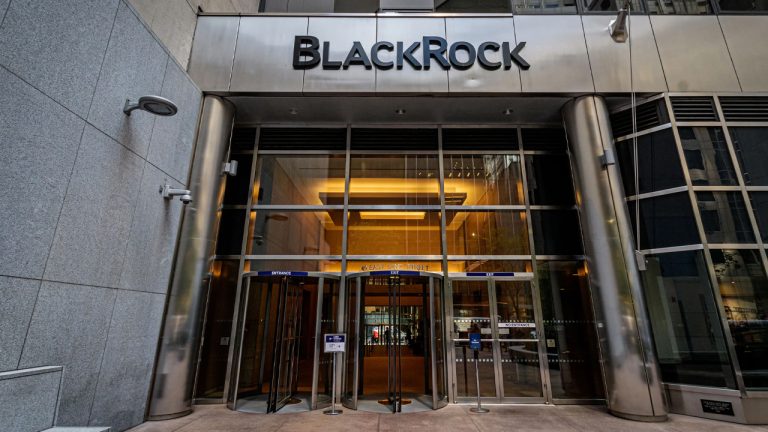 Since Sept. 15, 2024, onchain fees on the Ethereum network have seen a steady rise, jumping from $1 per transaction to $5.08 by Sept. 20. Though there was a slight dip, bringing fees down to just over $4 on Sept. 23, the average cost per transfer reached 0.0027 ETH ($7.06) on Tuesday morning. Ethereum Users […]
Since Sept. 15, 2024, onchain fees on the Ethereum network have seen a steady rise, jumping from $1 per transaction to $5.08 by Sept. 20. Though there was a slight dip, bringing fees down to just over $4 on Sept. 23, the average cost per transfer reached 0.0027 ETH ($7.06) on Tuesday morning. Ethereum Users […] Over the past few months, both Bitcoin and Ethereum users have noticed a noticeable drop in transaction fees. Ethereum’s network transfer fees, in particular, have fallen to such low levels that Etherscan, a leading Ethereum block explorer, has recently added decimal points to its gas tracker after fees dipped below 1 qwei. Etherscan’s New Decimal […]
Over the past few months, both Bitcoin and Ethereum users have noticed a noticeable drop in transaction fees. Ethereum’s network transfer fees, in particular, have fallen to such low levels that Etherscan, a leading Ethereum block explorer, has recently added decimal points to its gas tracker after fees dipped below 1 qwei. Etherscan’s New Decimal […]

In a strange turn of events, a phishing scammer has returned a large portion of funds it stole from a victim last September.
A phishing scammer has suddenly returned nearly $9.3 million to a victim after stealing $24 million from them in a phishing attack last September.
First noticed by Scam Sniffer on July 13, the scammer used Dai (DAI) stablecoin to return the funds across two transactions last week.
The first transfer saw $5.23 million returned on July 8, while another $4.04 million was sent on July 13 at 12:06 pm UTC, Etherscan data shows.

Leading smart contract platform Ethereum (ETH) generates far more revenue from fees per year than any other blockchain. New data from crypto tracker Lookonchain reveals that the top altcoin earns $2.728 billion in fees per year, or more than twice its closest rival, Tron (TRX), which earns $459.39 million annually. Ethereum also earned just over […]
The post $2,728,000,000 in Fees Generated by Ethereum Blockchain Annually, Over 5x Above Closest ETH Rival: Lookonchain appeared first on The Daily Hodl.

Kronos Research was exploited for $25 million in November 2023, with one of the six wallets linked to the hacker moving funds to Tornado Cash on May 7.
The hacker behind the $25 million exploit of quantitative trading firm Kronos Research in mid-November 2023 started moving funds nearly six months after the exploit.
The hacker wallet first transferred 1,314 Ether (ETH) worth $4 million to a new address, starting with 0x8F5e4 and later transferred all the ETH to another address starting with 0x164A24b.
The hacker made 10 transactions of 100 ETH from the final wallet and transferred it to Tornado Cash, a crypto-mixing tool.

Phishing scams are bubbling up on the Ethereum (ETH) block explorer Etherscan, according to the cybersecurity firm Scam Sniffer. The firm says Etherscan aggregates advertisements from crypto and web3 ad networks Coinzilla and Persona, which could be using “insufficient” filtering that enables exposure to phishing attempts. Scam Sniffer has previously noted crypto phishing scams facilitated […]
The post Phishing Scams Appear As Ads on Ethereum Block Explorer Etherscan: Report appeared first on The Daily Hodl.
 The globe’s most substantial asset manager by assets under management, Blackrock, has submitted a form to the U.S. Securities and Exchange Commission (SEC) for the initiation of a tokenized investment fund. Additionally, the community has unearthed the development of a token named the “Blackrock USD Institutional Digital Liquidity Fund” or BUIDL on the Ethereum blockchain. […]
The globe’s most substantial asset manager by assets under management, Blackrock, has submitted a form to the U.S. Securities and Exchange Commission (SEC) for the initiation of a tokenized investment fund. Additionally, the community has unearthed the development of a token named the “Blackrock USD Institutional Digital Liquidity Fund” or BUIDL on the Ethereum blockchain. […]
Etherscan, Ethereum’s (ETH) blockchain data explorer, has acquired its counterpart in the Solana (SOL) ecosystem, Solscan. Solscan launched in 2021 and has served more than 3 million monthly users since then, according to a press release announcing the acquisition. Both websites offer address information, token and transaction data, application programming interfaces (APIs), dashboards and non-fungible […]
The post Ethereum Blockchain Data Platform Etherscan Acquires Solana Ecosystem’s Block Explorer Solscan appeared first on The Daily Hodl.